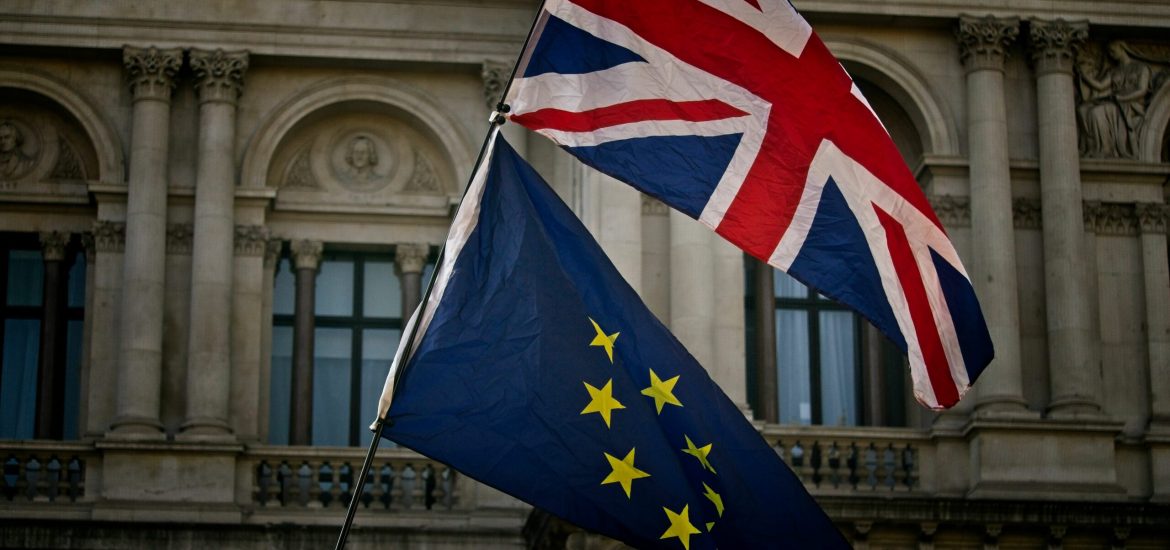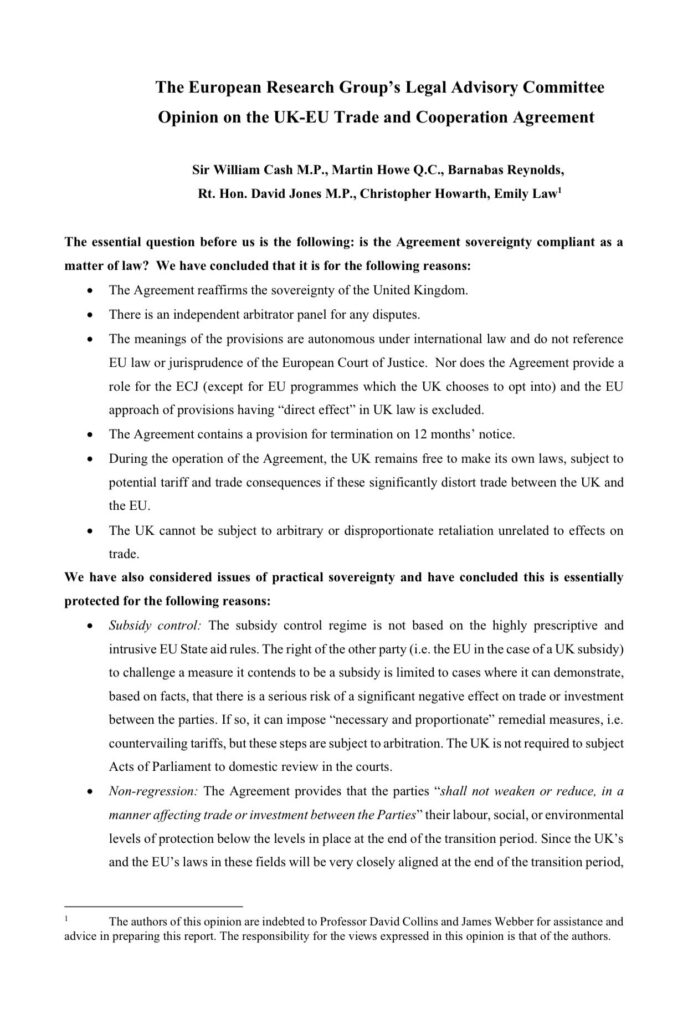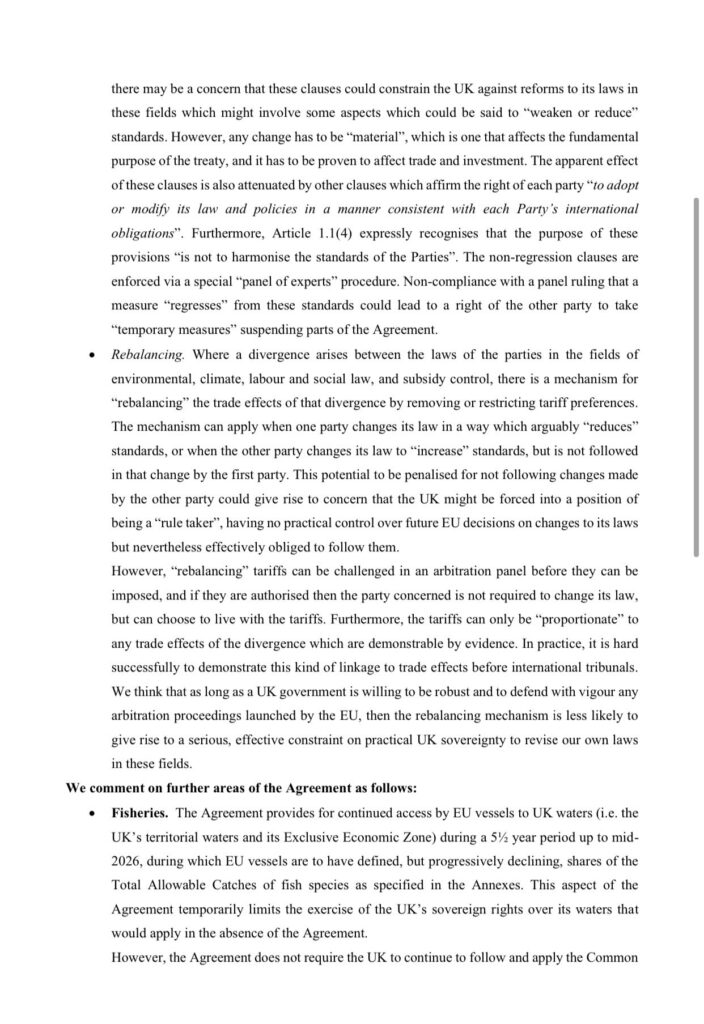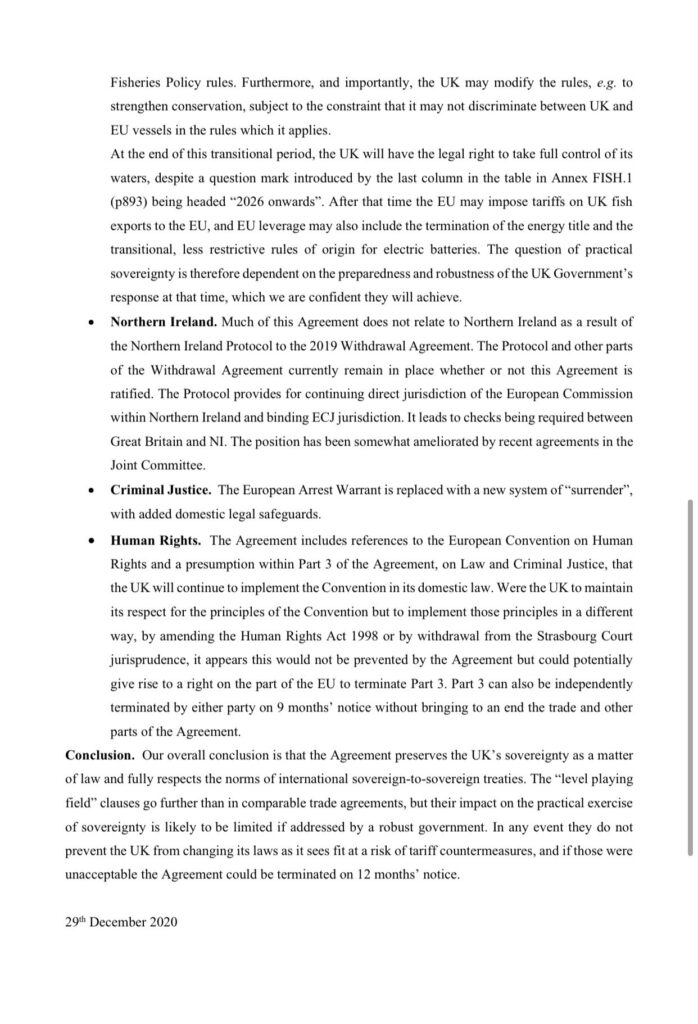29 December 2020 | ANALYSIS
One month ago, the negotiations between the EU and the UK looked on the rocks. In the year since Boris Johnson won the election, the threat that the UK would walk away from the talks has been almost constant. Yet the negotiations continued, despite the seemingly bleak prospects. Then, out of the blue, the President of the European Commission and the UK Prime Minister announced on Christmas Eve that the UK had agreed a deal with the EU. There is set to be a vote in Parliament tomorrow to gain legislative support for the deal.
Throughout the negotiations, the same thorns have continued to crop up, slowing down the negotiating process. The issue of the “level playing field”, which in the EU’s eyes would see continued regulatory alignment between the EU and UK, remained a point of discrepancy. In addition, EU access to UK fishing waters also stalled the progress.
Needless to say, the eventual agreement was long and detailed. It ran to 1,246 pages, with a separate Declarations document, a Civil Nuclear Agreement and a Security of Information Agreement. Taken together, these detail the future relationship between the two sides. The success of the negotiations must be viewed from one key aspect, which was the topic of the referendum originally; the UK must, after all is said and done, be an independent nation. So, what is the final conclusion? Here is our breakdown.
Trade and the level playing field:
In the deal, the UK and the EU agreed to tariff-free exports on goods moving between each other, as well as a zero-quota arrangement, meaning that there would be no limits on the exchange of goods. This is an unprecedented arrangement for the EU to sign, but it only applies as things currently stand. The free trade agreement will only remain as enacted if similar standards continue to apply. Should there be a divergence in standards, tariffs may be placed on different products by either side.
This does not appear to constitute a breach of sovereignty. So long as the UK has the ability to dictate its own standards, the EU’s response to those standards are not of immediate UK concern. A purely level playing field would have prevented the UK from changing any standards and kept it tied to the EU regulations, which is no longer the case.
Fisheries:
Over the last few years, since the start of the referendum campaigning, there have been two separate issues concerning EU access to the UK’s fishing waters. The first was whether or not the UK had sovereignty over its waters. This would entail the ability to bar French boats from UK waters should the UK desire. The other fishing concern was the protectionist promise to the UK fishing industry to restore its prosperity. This was not an issue of sovereignty, but rather a business concern.
The final deal states that, for 5.5 years, the EU will retain their current access to UK waters, with the UK share of the catch increasing by up to 25% in a tapered manner over that period. However, following this, there would be year-on-year negotiations for access to UK waters, but the EU may retaliate with tariffs on UK fish exports if it does not retain a level of access that it likes.
This would appear to assuage the first of the fishing concerns, because the UK Government ultimately does now have control over its waters and, after the 5.5 years, the UK has the ability to gain complete control over its seas should it desire. It is not uncommon for other sovereign countries to allow some fishing access for other countries as part of a trade deal.
As things stand, however, the deal would not satisfy the promise to the fishing industry of exclusive access to UK waters, at least for the next 5.5 years. However, come July 2026, fisheries policy will at least become an election policy platform that could be open to change and scrutiny.
Therefore, while the fishing community may not have got what it wants just yet in terms of complete access, there is definitely room for this to change, should the Government of the time decide to amend or withdraw the EU’s fisheries access, albeit with some consequences. In the long run, the fishing industry’s aim will be satisfied.
Interestingly, we note that the provisions on Energy will also expire in July 2026, although there is a facility to extend them temporarily. We are not certain whether there is any link between the two areas.
State aid:
The UK Government has reached a mutual agreement with the EU that, should other side engage in a bailout of a one of its companies that would endanger the competitiveness of the other side’s businesses, one could force the other to pay compensation. An independent adjudicator – and not the ECJ, for which there is no further role in this deal – would oversee the process. This agreement would not apply to banks.
This area has been a compromise. The UK will have full control of how it sets up its own subsidy scheme, but – as with fisheries – there could be consequences if the EU deems it to be unfair. Some will take the view that an independent nation should have the right to bail out its own industries if it deems this necessary, regardless of its impact on other nations. This deal means that both sides can only do so if there is no major adverse impact upon the other.
Immigration:
The deal sees the end of the free movement of people, which saw the unrestricted access to move between nations. It will be up to the UK to control its own immigration policy. The UK has already passed immigration legislation that sees the implementation of a new points-based system under the Immigration Bill.
Parliamentary view:
The European Research Group, or ERG, being the most eurosceptic wing of the Conservative Party, has published its findings on the deal. It gives broad approval.
Agreement text:
The full text of the draft agreement can be found here.



























